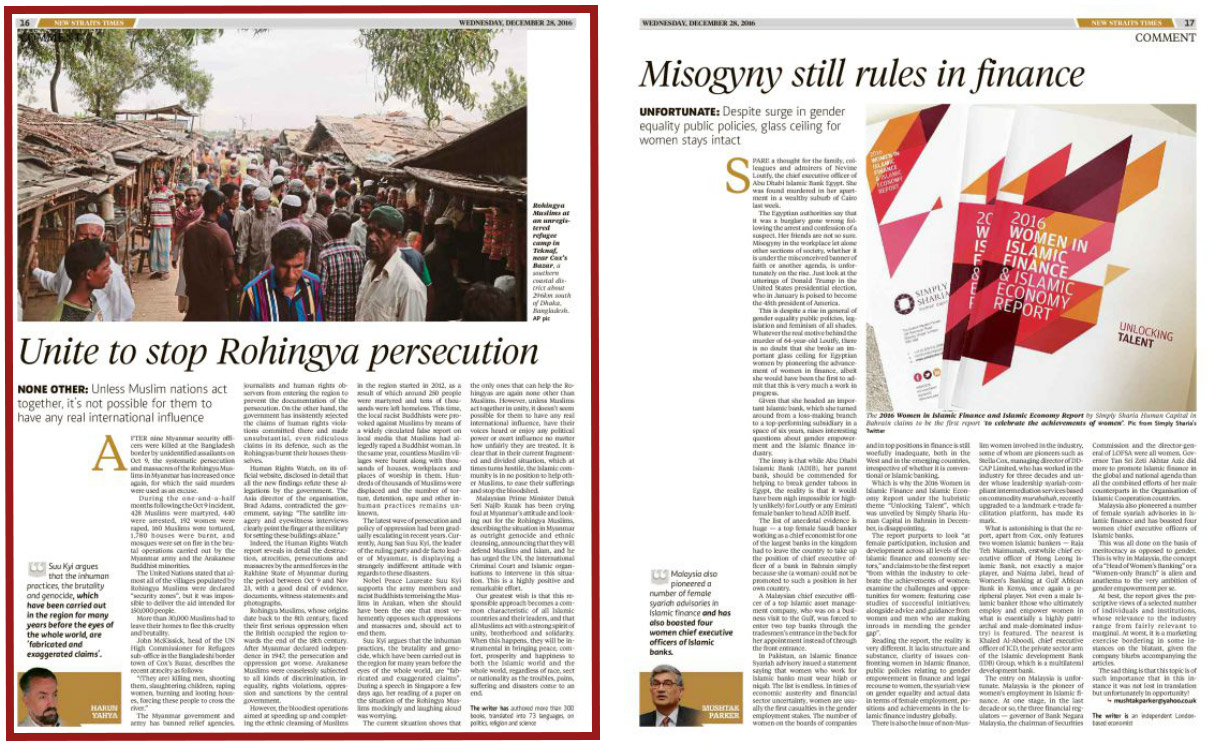
After nine Myanmar security officers were killed at the Bangladesh border by unidentified assailants on Oct 9, the systematic persecution and massacres of the Rohingya Muslims in Myanmar has increased once again, for which the said murders were used as an excuse.
During the one-and-a-half months following the Oct 9 incident, 428 Muslims were martyred, 440 were arrested, 192 women were raped, 160 Muslims were tortured, 1,780 houses were burnt, and mosques were set on fire in the brutal operations carried out by the Myanmar army and the Arakanese Buddhist minorities.
The United Nations stated that almost all of the villages populated by Rohingya Muslims were declared “security zones”, but it was impossible to deliver the aid intended for 150,000 people.
More than 30,000 Muslims had to leave their homes to flee this cruelty and brutality.
John McKissick, head of the UN High Commissioner for Refugees sub-office in the Bangladeshi border town of Cox’s Bazar, describes the recent atrocity as follows:
“(They are) killing men, shooting them, slaughtering children, raping women, burning and looting houses, forcing these people to cross the river.”
The Myanmar government and army has banned relief agencies, journalists and human rights observers from entering the region to prevent the documentation of the persecution. On the other hand, the government has insistently rejected the claims of human rights violations committed there and made unsubstantial, even ridiculous claims in its defence, such as the Rohingyas burnt their houses themselves.
Human Rights Watch, on its official website, disclosed in detail that all the new findings refute these allegations by the government. The Asia director of the organisation, Brad Adams, contradicted the government, saying: “The satellite imagery and eyewitness interviews clearly point the finger at the military for setting these buildings ablaze.”
Indeed, the Human Rights Watch report reveals in detail the destruction, atrocities, persecutions and massacres by the armed forces in the Rakhine State of Myanmar during the period between Oct 9 and Nov 23, with a good deal of evidence, documents, witness statements and photographs.
Rohingya Muslims, whose origins date back to the 8th century, faced their first serious oppression when the British occupied the region towards the end of the 18th century. After Myanmar declared independence in 1947, the persecution and oppression got worse. Arakanese Muslims were ceaselessly subjected to all kinds of discrimination, inequality, rights violations, oppression and sanctions by the central government.
However, the bloodiest operations aimed at speeding up and completing the ethnic cleansing of Muslims in the region started in 2012, as a result of which around 250 people were martyred and tens of thousands were left homeless. This time, the local racist Buddhists were provoked against Muslims by means of a widely circulated false report on local media that Muslims had allegedly raped a Buddhist woman. In the same year, countless Muslim villages were burnt along with thousands of houses, workplaces and places of worship in them. Hundreds of thousands of Muslims were displaced and the number of torture, detention, rape and other inhuman practices remains unknown.
The latest wave of persecution and policy of oppression had been gradually escalating in recent years. Currently, Aung San Suu Kyi, the leader of the ruling party and de facto leader of Myanmar, is displaying a strangely indifferent attitude with regards to these disasters.
Nobel Peace Laureate Suu Kyi supports the army members and racist Buddhists terrorising the Muslims in Arakan, when she should have been the one that most vehemently opposes such oppressions and massacres and, should act to end them.
Suu Kyi argues that the inhuman practices, the brutality and genocide, which have been carried out in the region for many years before the eyes of the whole world, are “fabricated and exaggerated claims”. During a speech in Singapore a few days ago, her reading of a paper on the situation of the Rohingya Muslims mockingly and laughing aloud was worrying.
The current situation shows that the only ones that can help the Rohingyas are again none other than Muslims. However, unless Muslims act together in unity, it doesn’t seem possible for them to have any real international influence, have their voices heard or enjoy any political power or exert influence no matter how unfairly they are treated. It is clear that in their current fragmented and divided situation, which at times turns hostile, the Islamic community is in no position to help other Muslims, to ease their sufferings and stop the bloodshed.
Malaysian Prime Minister Datuk Seri Najib Razak has been crying foul at Myanmar’s attitude and looking out for the Rohingya Muslims, describing the situation in Myanmar as outright genocide and ethnic cleansing, announcing that they will defend Muslims and Islam, and he has urged the UN, the International Criminal Court and Islamic organisations to intervene in this situation. This is a highly positive and remarkable effort.
Our greatest wish is that this responsible approach becomes a common characteristic of all Islamic countries and their leaders, and that all Muslims act with a strong spirit of unity, brotherhood and solidarity. When this happens, they will be instrumental in bringing peace, comfort, prosperity and happiness to both the Islamic world and the whole world, regardless of race, sect or nationality as the troubles, pains, suffering and disasters come to an end.
0 comments:
Post a Comment